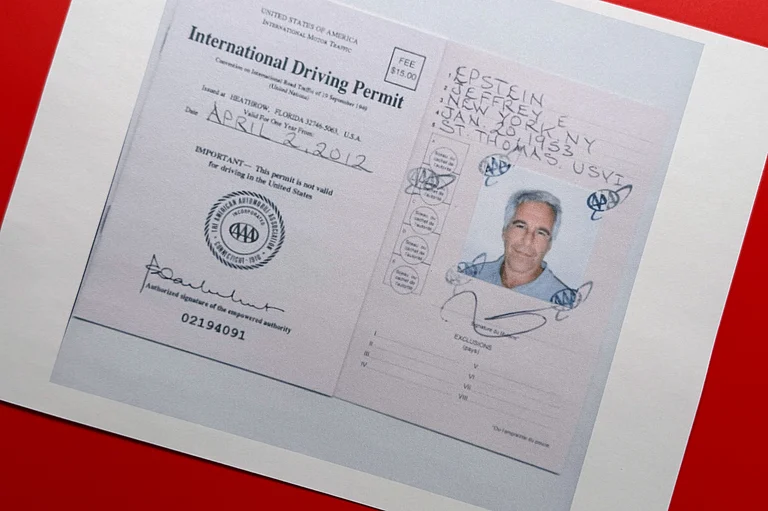I believe it falls to me to say something about Douglas's love of science. He once asked my advice. He wascontemplating going back to university to read science, I think specifically my own subject of Zoology. Iadvised against it. He already knew plenty of science. It rings through almost every line he wrote and throughthe best jokes he made. As a single example, think of the Infinite Improbability Drive. Douglas's ear forscience was finely tuned. He thought like a scientist, but was much funnier. It is fair to say that he was ahero to scientists. And technologists, especially in the computer industry.
His unjustified humility in the presence of scientistscame out touchingly in a magnificent impromptuspeech at Cambridge conference which I attended in 1998. He was invited as a kind of honorary scientista thing that happened to him quite often. Thankgoodness somebody switched on a tape recorder, and so we have the whole of this splendid extempore tour deforce.It certainly ought to be published somewhere. I'mgoing to read a few disconnected paragraphs. He was a wonderfulcomedian as well as a brilliant comic writer, and you can hear his voice in every line:-
This was originally billed as a debate only because I was a bit anxious coming here. . . .in a room full of such luminaries, I thought 'what could I, as an amateur, possibly have to say'? So I thoughtI would settle for a debate. But after having been here for a couple of days, I realised you're just a bunchof guys! . . .I thought that what I'd do is stand up and have adebate with myself . . . and hope sufficiently to provoke and inflame opinion that there'll be an outburst ofchair- throwing at the end.Before I embark on what I want to try and tackle, may I warn you that things may get alittle bit lost from time to time, because there's a lot of stuff that's just come in from what we've beenhearing today, so if I occasionally sort of go...I have afour-year-old daughter and was very, very interested watching her face when she was in her first 2 or 3 weeksof life and suddenly realising what nobody would have realised in previous ages—she was rebooting!
I just want to mention one thing, which is completely meaningless, but I am terribly proudof—I was born in Cambridge in 1952 and my initials are D N A!
These inspired switches of subject are so characteristicof his style andso endearing.
I remember once, a long time ago, needing a definition of life for a speech I was giving.Assuming there was a simple one and looking around the Internet, I was astonished at how diverse thedefinitions were and how very, very detailed each one had to be in order to include 'this' but not include'that'. If you think about it, a collection that includes a fruit fly and Richard Dawkins and the GreatBarrier Reef is an awkward set of objects to try and compare.
There are some oddities in the perspective with which we see the world. The fact that welive at the bottom of a deep gravity well, on the surface of a gas-covered planet going around a nuclearfireball 90 million miles away and think this to be normal is obviously some indication of how skewedour perspective tends to be, but we have done various things over intellectual history to slowly correct someof our misapprehensions.
This next paragraph is one of Douglas's set-pieces whichwill be familiar to some people here. I heard it more than once, and I thought it was more brilliant everytime
. . . imagine a puddle waking up one morning and thinking, 'This is an interesting world Ifind myself in'an interesting hole I find myself in'fits me rather neatly, doesn't it? In fact it fits mestaggeringly well, must have been made to have me in it!' This is such a powerful idea that as the sun risesin the sky and the air heats up and as, gradually, the puddle gets smaller and smaller, it's still franticallyhanging on to the notion that everything's going to be alright, because this world was meant to have him init, was built to have him in it; so the moment he disappears catches him rather by surprise. I think this maybe something we need to be on the watch out for.
Douglas introduced me to Lalla. They had worked together,years ago, on Dr Who, and it was she who pointed out to me that he had a wonderful childlike capacity to gostraight for the wood, and never mind the trees:
If you try and take a cat apart to see how it works, the first thing you have on your handsis a non-working cat. Life is a level of complexity that almost lies outside our vision; it is so far beyondanything we have any means of understanding that we just think of it as a different class of object, adifferent class of matter; 'life', something that had a mysterious essence about it, was god given'and that'sthe only explanation we had. The bombshell comes in 1859 when Darwin publishes 'On the Origin of Species'.It takes a long time before we really get to grips with this and begin to understand it, because not only doesit seem incredible and thoroughly demeaning to us, but it's yet another shock to our system to discover thatnot only are we not the centre of the Universe and we're not made of anything, but we started out as some kindof slime and got to where we are via being a monkey. It just doesn't read well.
.....
It all fell into place. It was a concept of such stunning simplicity, but it gave rise,naturally, to all of the infinite and baffling complexity of life. The awe it inspired in me made the awe thatpeople talk about in respect of religious experience seem, frankly, silly beside it. I'd take the awe ofunderstanding over the awe of ignorance any day
I once interviewed Douglas on television, for a programme I was making on my own love affair with science. Iended up by asking him,'What is it about science that reallygets your blood running?' And here is what he said, again impromptu, and all the more passionate for that.
The world is a thing of utter inordinate complexity and richness and strangeness that isabsolutely awesome. I mean the idea that such complexity can arise not only out of such simplicity, butprobably absolutely out of nothing, is the most fabulous extraordinary idea. And once you get some kind ofinkling of how that might have happened ' it's justwonderful. And . . . the opportunity to spend 70 or 80 years of your life in such a universe is time wellspent as far as I am concerned. ['Break the Science Barrier with RichardDawkins', Channel 4, Equinox Series, 1996]
That last sentence of course has a tragic ring for us now. It has been our privilege to know a man whosecapacity to make the best of a full lifespan was as great as was his charm and his humour and his sheerintelligence. If ever a man understood what a magnificent place the world is, it was Douglas. And if ever aman left it a better place for his existence, it was Douglas. It would have been nice if he'd given us thefull 70 or 80 years. But by God we got our money's worth from the forty nine!























